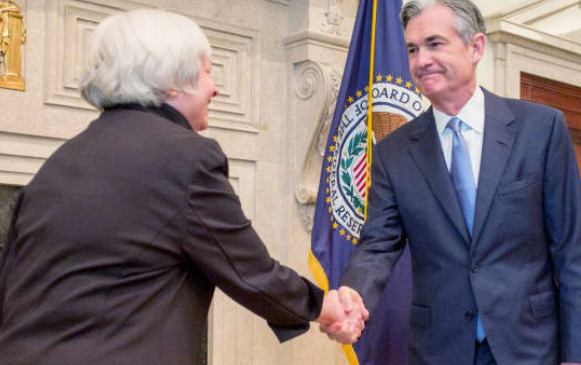Tue Nov 30, 2021
Tuesday / November 30
Powell-Yellen at Senate
US Federal Reserve Chairman Jerome Powell believes that the micron variant of Covid-19 and the recent increase in coronavirus cases pose a threat to the US economy and worsen the already uncertain inflation outlook.
“The recent rise in COVID-19 cases and the emergence of the Omicron variant pose downside risks to employment and economic activity and increased uncertainty for inflation,” Powell says in written remarks to the Senate lawmakers on Tuesday. “Greater concerns about the virus could reduce people’s willingness to work in person, which would slow progress in the labor market and intensify supply-chain disruptions.”
Treasury Secretary Janet Yellen will also join Powell to testify before the Senate committee. The Fed chair and Treasury secretary are required to report to Congress every fiscal calendar quarter, as required by the March 2020 economic aid legislation that expands the central bank's emergency loan programs.
The Fed chair is also to comment more directly on inflation, saying that the persistence and impact of supply restrictions is difficult to predict, but that now “factors pushing inflation upward will linger well into next year.”
Opec+ policy
Russia and Saudi Arabia signaled on Monday that OPEC+ does not need to rush to adjust its oil production policy this week.
The group holds its policy meeting on Wednesday and Thursday.
Crude oil prices rebounded from the dip sparked by major fears about the impact of the omicron variant on demand easing.
Oil prices, along with other financial markets, lost more than 10% on Friday in the biggest daily drop since April 2020, as the new variable raised concerns about a possible oversupply.
Russian Deputy Prime Minister Alexander Novak said on Monday he does not see the need for immediate action in the oil market on the Omicron issue and downplays the possibility of a change to the OPEC+ oil supply agreement this week.
Saudi energy minister Prince Abdulaziz bin Salman al-Saud said on Monday he was not worried about Omicron, but declined to comment on OPEC+ plans, Saudi Asharq Business reported.
Nuclear talks
Indirect talks between the US and Iran on the 2015 Iran nuclear deal resumed on Monday after a one-month hiatus.
Iran's Foreign Minister set the tone just before talks began, saying there would be "no way back" to the deal without lifting all sanctions the US had imposed on Iran when the Trump administration left the deal in 2018.
Tehran takes a tough stance in public, which Western powers say won't work. Diplomats say time is running out to resurrect the deal.
The delegates of the European Union, Iran and Russia made optimistic assessments of the meeting, in which Iran refused to meet face-to-face with the United States.
“I feel extremely positive about what I saw today,” said Enrique Mora, the EU official who chaired the talks, after the meeting.
Russia's envoy to the negotiations, Mikhail Ulyanov, said on Twitter that they "started quite successfully". When asked if he was optimistic, Ali Bagheri Kani, Iran's chief negotiator, said: "Yes, I am."
Meanwhile, Israel has shared intelligence with the United States and several European allies over the past two weeks, suggesting that Iran has taken technical steps to prepare to enrich enough uranium for nuclear weapons to 90% purity, according to Axios.
US non-farm employment
U.S. employers likely hired more than half a million workers for the second month in a row in November, according to estimates.
Nonfarm payrolls are expected to increase by 550,000 and the US unemployment rate to drop to 4.5%, according to median estimates by Bloomberg economists ahead of US Department of Labor data to be released on Friday.
The expected strong employment report and consumer prices to be announced by the Ministry of Labor on December 10 may justify a decision to accelerate the reduction of bond purchases at the Central Bank Fed's meeting in mid-December.
Japanese workforce figure
Japan's unemployment rate fell to 2.7% in October in seasonally adjusted terms, while available job opportunities also fell month-on-month, according to government data released on Tuesday.
The figure released by the Japanese interior ministry is the median market estimate of 2.8% and is lower than the previous figure.
The job-applicant ratio fell to 1.15 from 1.16 the previous month, according to the labor ministry. The median estimate in the Reuters poll of economists was 1.17.
